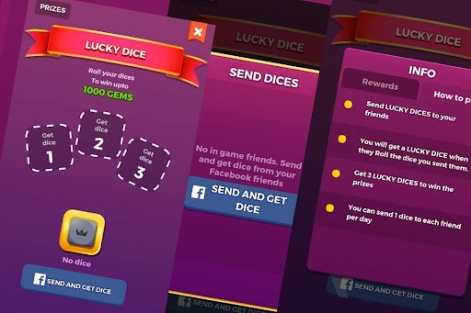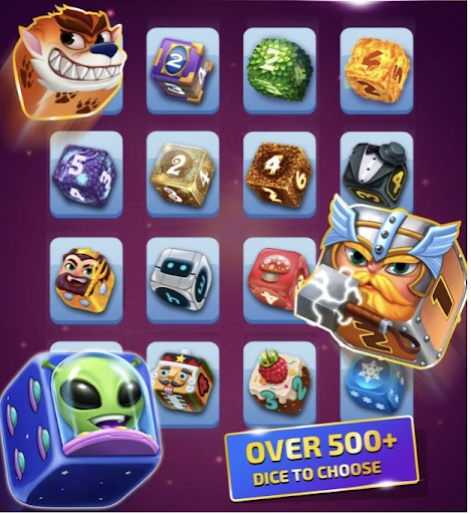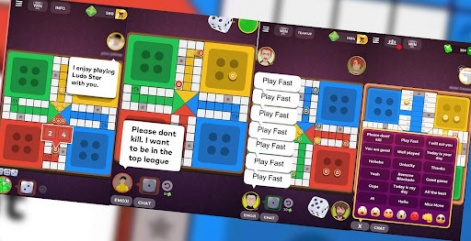Pradeep Gupta, one of the founders of Gameberry Labs writes for PocketGamer.biz about the value of strong social features and referral mechanics when growing an active, engaged audience.
Over the last decade, the preferences of gamers have changed, as more and more people now also prefer social mobile games over conventional forms. They like to connect with their friends and families and play with them together. According to a recent report by Statista, the revenues from social/casual mobile games are expected to touch $98 billion by 2024.
At Gameberry Labs, we build games that players would love to grow old with. We are one of the fastest-growing mobile studios from India, offering two globally iconic, social multiplayer mobile games – Ludo Star and Parchisi Star (Spanish version of Ludo).
Both of these dice games have been viral hits. Ludo Star has proved extremely popular in the Middle East/North Africa (MENA) and Asia Pacific (APAC) regions, while Parchesi Star has found an audience in countries like Spain, Morocco, Columbia, Mexico, and the Dominican Republic.
During the pandemic, our games grew from 2.2 million daily active players (DAUs) to 15 million DAUs which is presently stabilised at six million daily active players. We have also surpassed 125 million-plus downloads worldwide. Notably, these two games share the same code base.
…around 95 per cent of our growth has been purely organic
Predeep Gupta
According to App Magic, our games are the second-highest revenue-generating multiplayer ludo games on the market. Countries like Saudi Arabia, the US and Spain have contributed the most to our revenue growth. Out of this, around 95 per cent of our growth has been purely organic. There has been a carefully crafted strategy that has gone into achieving this feat.
Strong Referral Mechanics For Virality
Our in-game social features and referral mechanics have helped us create an exceptional gameplay experience with an unparalleled sense of community, and our players love us for it. The easy ‘game invite’ mechanics lies at the heart of our core gaming experience, rather than being hidden in settings or menus – this boosted the game’s virality rate massively and helped us acquire new players at zero marketing budget.
Another feature that added to the growth was enabling Facebook/WhatsApp game invites. We kept the invite-flow design seamless and intuitive so that players could link their Facebook accounts easily and invite their friends. In addition to Facebook, we also extended the invite feature to popular messaging channels like WhatsApp.
To re-engage our existing players, we also added a game buddies feature that nudged them to challenge their game connections and make them feel a part of our player community. Making our players seamlessly share their game wins or team up requests with an attractive and strong call to action (CTA) messaging further pushed the words about our games organically and helped us bring more active users.
Almost immediately after launch, both the games began gaining organic traction. Our focus on early player feedback helped our games achieve high ratings, resulting in organic downloads and making them popular worldwide. Ludo Star became a viral sensation and hit the popularity charts in Saudi Arabia and Pakistan.
The game also trended on Twitter and was covered by local news channels in Pakistan. During the pandemic, Parchisi Star jumped to number one (games category) in both the Apple App Store and Google Play Store in Spain and achieved an overall number three ranking in Spain.
The game gained traction as more players started playing, and the market expanded for us. In May 2020, 1.3 million people were playing the game simultaneously which was an engineering milestone for Gameberry Labs.
Network effect for strong weekly average user growth
A strong Facebook engagement loop at the player level gave us an edge over other titles. The social-first design approach we adopted, helped us in gaining loyal players. We leveraged the ‘player-to-player Facebook connection’ by integrating mini-events such as ‘Lucky Dice’ – where players earn free gems by exchanging dice with their Facebook friends.
Gems are one of the currencies in our game that allows players to undo dice rolls and give them a second chance to get the number they want, making it even more exciting. This network effect made the game massively popular and the Ludo category started getting recognised as Ludo Star. Around 64 per cent of our weekly active players engage with Lucky Dice in a week.

We also introduced a unique dice collection system that further fuelled the game’s social experience, as players loved exchanging dice faces to complete their collections while helping others build theirs. Engaging, rewarding, and enabling players to market us organically is an integral part of our growth strategy.

Chat, gifts and emojis
It was critical for the success of our games that the players enjoy the digital version of these classic board games, as well. We further enhanced the gameplay experience using social features like text chat, quick text, and emojis.

The interactive element of these social features made millions of our players log in every day to also seek social experiences and new connections within our gaming ecosystem. Our players exchange 38 million messages and 41 million emojis in the game every day.
Another social feature driving the experience has been our in-game gifts. Gifting is a powerful system that builds on players’ emotional engagement making the gameplay more exciting. Every day, our players send each other in-game gifts worth 630 million in-game currency.

Touching lives
In recent years, this social aspect of our games has touched millions of lives – people have found life partners, reconnected with old friends, and bonded with family members, giving every board a unique story with relationships and deep connections at the core.
Although the games have gained enormous popularity among players, monetising the games in a niche category like this has always been challenging. Live ops have helped us combat the low in-app purchasing (IAP) revenue challenge of the same.
…this social aspect of our games has touched millions of lives
Predeep Gupta
We have ongoing weekly events and promotions that have helped us boost revenue opportunities. Currently, our revenue is divided between in-app purchases (70 per cent) and ads (30 per cent) and we have seen a 400 per cent revenue growth in 2020.
Building long-term relationships
One thing that differentiates Gameberry Labs from other studios is our firm belief in building long-term relationships with our players. While we have experimented with other games in the past, they didn’t make it to the list and were killed since they didn’t fit into our core design philosophy of building games that players love to grow old with.
Our next game is a ‘merge’ game as we see a lot of potential in this category. The game is tentatively called Merge Bliss where players will be able to build countryside by merging and serving their neighbourhood. Currently, the game is in the testing phase and the team is excited to release it by the end of this year.
With the phenomenal success of our games in a niche category, our eyes are now keenly set on taking them to the next level and launching other monetisable titles as well.

